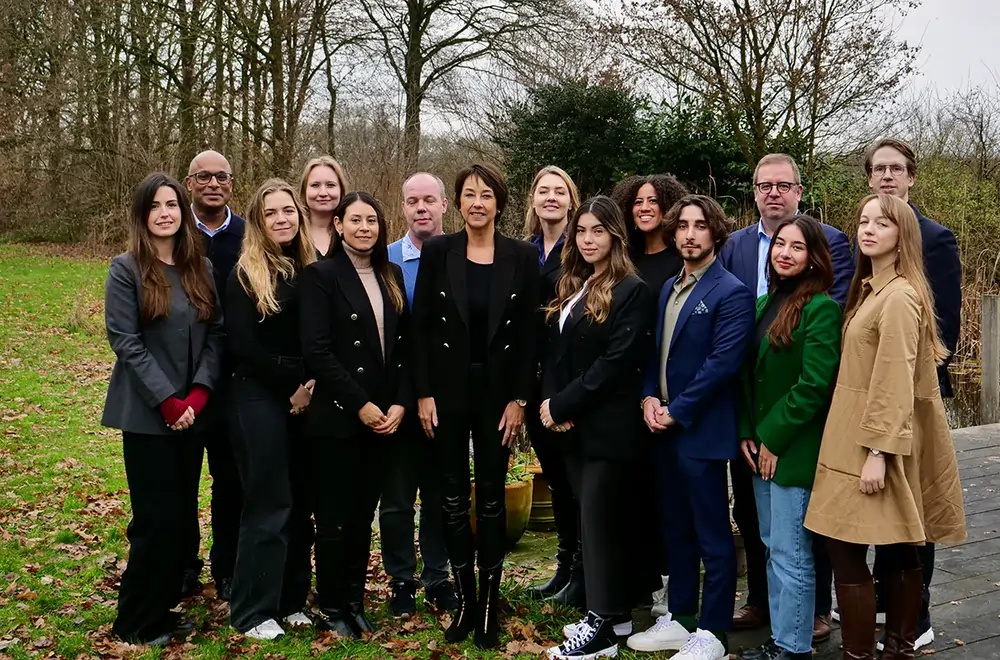
We use cookies to help you navigate efficiently and perform certain functions. You will find detailed information about all cookies under each consent category below.
The cookies that are categorised as "Necessary" are stored on your browser as they are essential for enabling the basic functionalities of the site. ...
Necessary cookies are required to enable the basic features of this site, such as providing secure log-in or adjusting your consent preferences. These cookies do not store any personally identifiable data.
Functional cookies help perform certain functionalities like sharing the content of the website on social media platforms, collecting feedback, and other third-party features.
Analytical cookies are used to understand how visitors interact with the website. These cookies help provide information on metrics such as the number of visitors, bounce rate, traffic source, etc.
Performance cookies are used to understand and analyse the key performance indexes of the website which helps in delivering a better user experience for the visitors.
Advertisement cookies are used to provide visitors with customised advertisements based on the pages you visited previously and to analyse the effectiveness of the ad campaigns.
Promoting the rule of law is at the heart of everything we do at CILC. We bring together experts from across the international legal community to carry out international judicial and security cooperation projects. Leveraging our legal expertise and project management experience, we initiate and implement projects that have enduring impact.
At CILC, we’ve been promoting the rule of law through judicial cooperation for 40 years. The Dutch government initiated CILC’s establishment in 1985 to manage and implement a long-term judicial cooperation project with Indonesia. We expanded our focus to include other regions in the following years. The fall of communist regimes in Eastern Europe in the late 1980s created a great need for expertise to help the new governments develop the rule of law.
CILC responded to this need by launching legal cooperation projects to promote the rule of law and support legal reforms and advancements. This spurred CILC’s transformation into a project organisation operating in the focus countries of Indonesia, MENA, Suriname, Ukraine and Western Balkans. Today we continue to work closely with Dutch and local partners to promote the rule of law through cooperation.

Achieving growth together. We join forces with our partners and donors to realise more impact for more people. We don’t grow for growth’s sake. We expand and develop so that together we can continue making strides towards strengthening justice systems and the rule of law.

We believe in the power of collaboration as a vehicle for bringing about a more just world. Our mission to promote the rule of law guides everything we do.
We put our aims into action by initiating and implementing international legal and security cooperation projects. With a network uniting judicial experts from different countries and specialisations, we match the expertise to the need. Working in direct collaboration with our Dutch and international partners, we conduct projects that make a real change and a lasting difference.
We believe in the power of bringing people together to achieve common goals.
We envision a bright future and focus on growth and renewal en route to tomorrow.
We promote teamwork and cooperation so that we can address complex legal challenges with collective wisdom and expertise.
We uphold the highest ethical standards, ensuring transparency and trust in all our interactions and projects.
What makes CILC distinctive is our collaborative approach to project management. We tap into our global network of partners and our direct connections with ministries and organisations operating in The Hague as the legal capital of the world.
Operating from our base in the heart of The Hague gives us a world of benefits. As part of The Hague legal community, we have direct lines to the Dutch judiciary, the Ministry of Justice and Security and university law faculties. This direct interaction means we enjoy short lines of communication and active collaboration.
We design and manage complex projects.
With experts on the ground, we leverage our management skills to bring together the best skilled professions to drive the project forward and achieve the set objectives.
We have connections with the leading global justice institutions. With 40 years’ experience in international legal cooperation, we’ve developed close and lasting relations with partners worldwide. We have direct contact with our partners, meaning we receive direct input and first-hand information concerning the local situation.
CILC has a streamlined organisation without bureaucratic layers. This means we can operate proactively and dynamically. Thanks to our agile setup, we can adapt to the needs of each specific project. This approach offers major advantages: streamlined decision-making, a proactive culture and short lines of communication.
Our international team brings together professionals from different backgrounds and specialised fields. Everyone on the team shares a passion for promoting the rule of law through cooperation.